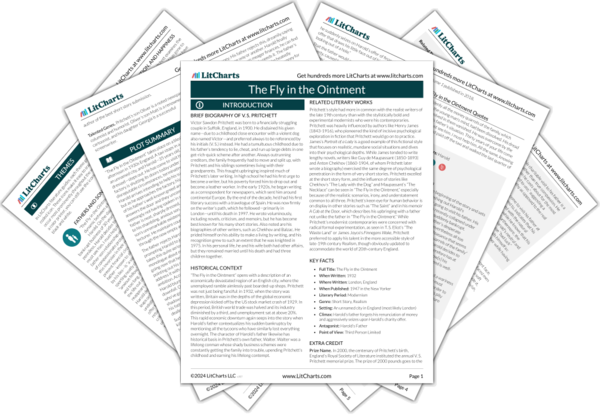Fathers and Sons
“The Fly in the Ointment” explores the complex dynamic between a father and his adult son, Harold. On the day that the father’s suddenly bankrupt business of 30 years is shutting its doors, leaving him penniless, Harold decides to pay him a visit, telling himself, “I must see him. I must help him.” Pritchett thus turns the typical father-son relationship on its head, showing the son in the role of compassionate protector. The story…
read analysis of Fathers and SonsOptimism, Ambition, and Happiness
In “The Fly in the Ointment,” Pritchett examines the ambiguous power of optimism. Harold has gone to visit his aging father, whose crooked dealings have finally ruined his business of 30 years. Harold’s father dismisses his son’s concerns about his future: “Worrying? You keep on using that word. I’m not worrying. Things are fine.” When Harold replies, “you always were an optimist,” his father launches into a dramatic defense of his optimism as the…
read analysis of Optimism, Ambition, and HappinessSelf-Delusion
“The Fly in the Ointment” considers how a moment of crisis can amplify self-delusion. Harold himself must have performed a bit of self-deception in order to visit his newly bankrupt father in the first place, letting his sympathy override all that he knew about his nefarious father. This effort to look beyond his misgivings about his father runs aground, however, when this moment of crisis enables Harold to notice “for the first time” his father’s…
read analysis of Self-Delusion







